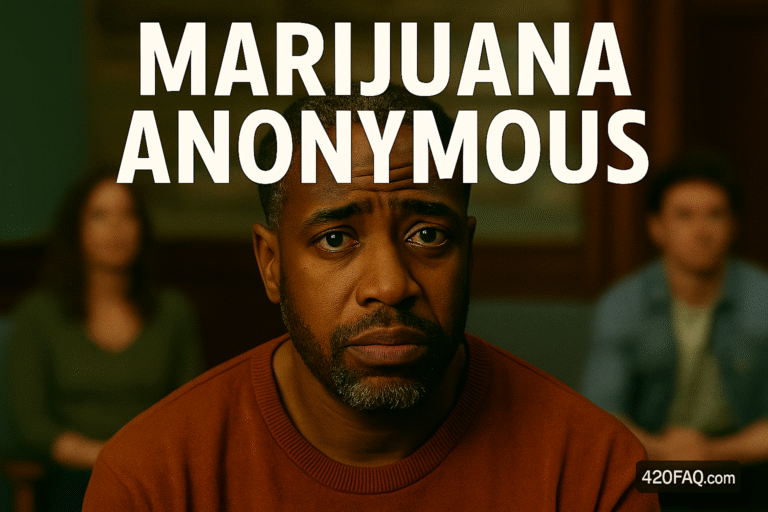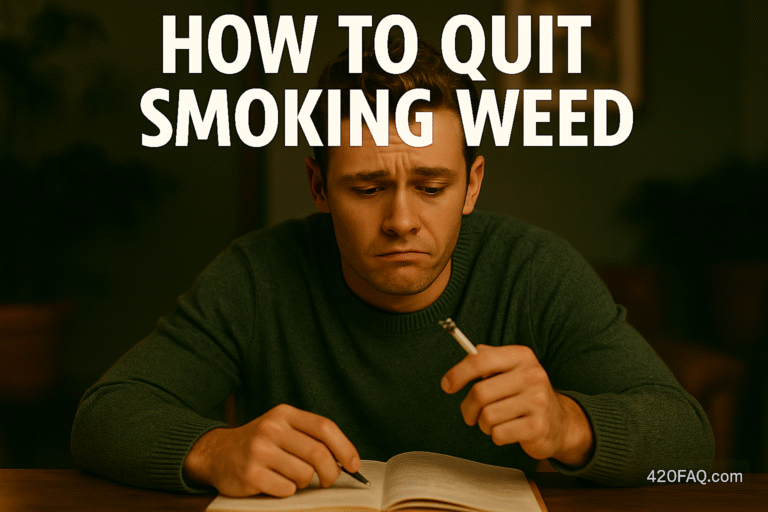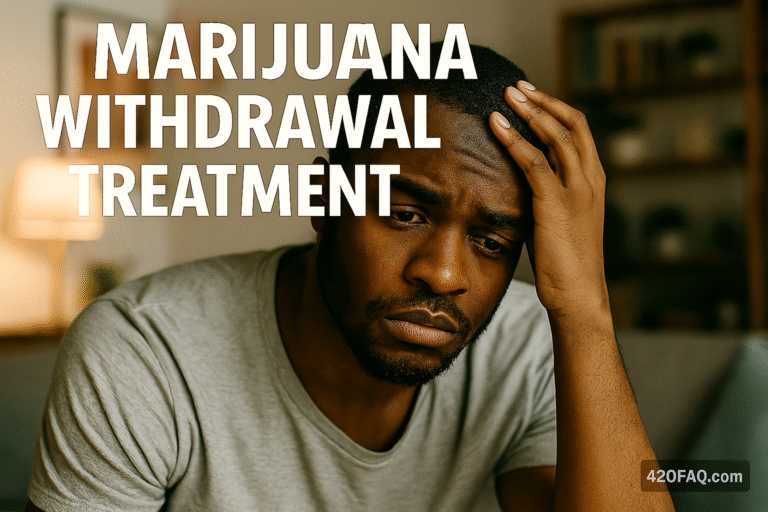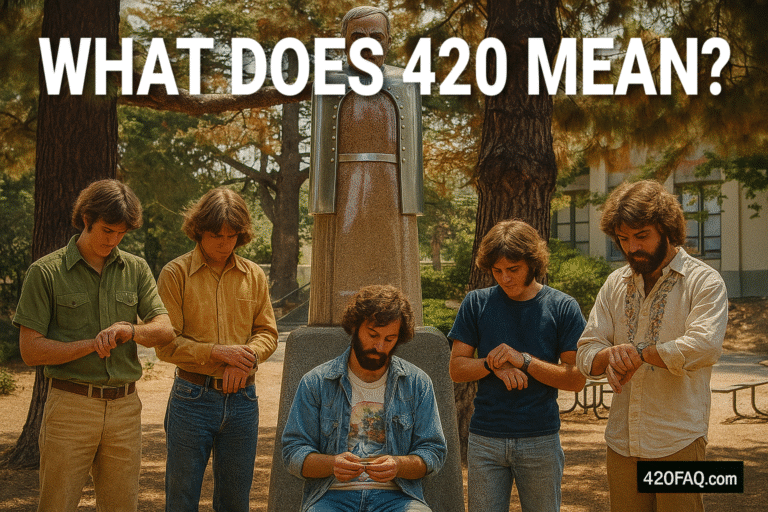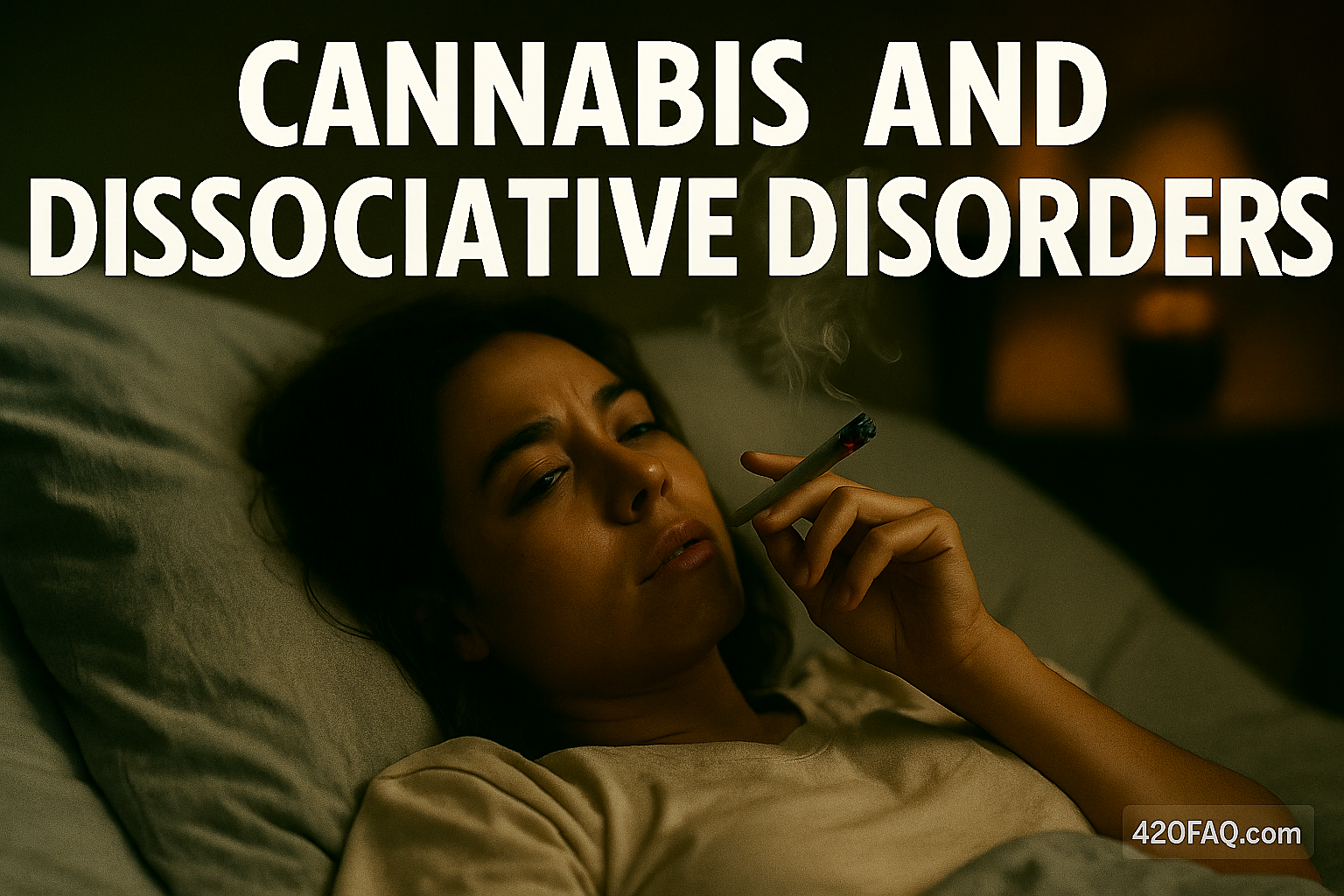
Cannabis and Dissociative Disorders: Mechanisms, Risks, and Practical Guidance
A comprehensive look at how cannabis can intersect with depersonalization/derealization and other dissociative phenomena—covering mechanisms, current evidence, risk factors, and harm-reduction steps.
What Are Dissociative Disorders?
Dissociative disorders are conditions in which a person’s normal integration of identity, memory, perception, and consciousness becomes disrupted. The spectrum includes Depersonalization/Derealization Disorder (DPDR), characterized by persistent feelings of being detached from one’s body (depersonalization) or surroundings (derealization), as well as dissociative amnesia and dissociative identity disorder. Episodes may be brief and stress-linked—or chronic and functionally impairing.
How Cannabis Affects Perception and Self-Processing
Cannabis mainly acts via the endocannabinoid system, especially CB1 receptors in cortical and limbic networks involved in attention, salience, time perception, and self-referential processing. Δ9-THC (tetrahydrocannabinol) is a partial agonist at CB1 and can acutely alter sensory gating, interoception, and the sense of presence. These shifts explain common experiences—time distortion, intensified internal focus, and altered bodily sensations—that, in vulnerable individuals or at higher doses, can resemble dissociative symptoms.
- Acute effects: altered time perception, derealization-like detachment, anxiety/panic (dose-dependent).
- Chronic/high-potency exposure: greater odds of anxiety, cognitive dulling, and persistent perceptual changes in susceptible users.
- CBD vs. THC: cannabidiol (CBD) has low affinity at CB1 and may counter some THC-related anxiety, but product ratios vary and effects are not guaranteed.
Why Can Cannabis Trigger or Worsen Dissociation?
Several pathways plausibly link cannabis to dissociative phenomena:
- Perceptual destabilization: THC can amplify internal sensations while blunting external salience, producing a “dreamlike” quality akin to derealization.
- Anxiety loops: THC-induced anxiety/panic can provoke hypervigilance to internal states, reinforcing depersonalization.
- Stress and sleep disruption: Irregular sleep and high psychosocial stress—both common in heavy use—raise dissociation risk.
- Developmental sensitivity: Younger users may be more vulnerable due to ongoing maturation of fronto-limbic circuits.
What Does the Evidence Say?
Clinical reports describe cases where cannabis exposure preceded the onset or exacerbation of DPDR-like symptoms. One peer-reviewed resource reviews presentations of Cannabis-Induced Depersonalization-Derealization Disorder, noting that episodes can be acute, recurrent, or—less commonly—persistent after cessation. Observational work also associates heavier, high-potency use with more anxiety and perceptual anomaly complaints, though causality and directionality can be hard to untangle.
On the chronic side, some treatment centers report persistent dissociative complaints in heavy users; see discussion on depersonalization in the context of sustained use here: Chronic marijuana use. Controlled longitudinal studies specific to dissociative diagnoses remain limited; conclusions should be considered provisional pending larger, better-controlled cohorts.
Who Is at Higher Risk?
- Personal or family history of anxiety disorders, DPDR, trauma-related disorders, or psychosis-spectrum conditions.
- High-potency THC products, rapid titration, or concentrates.
- Early age of initiation and frequent/daily use.
- Sleep deprivation, stimulant/caffeine excess, or acute stress.
- Co-use of hallucinogens or dissociatives (e.g., ketamine, DXM) that prime dissociative states.
Differentiating Normal Effects from DPDR
Short-lived “trippy” sensations after THC—mild time shift, intensified thoughts—are common and typically resolve as intoxication fades. Concerning red flags include:
- Feeling persistently detached from self or surroundings beyond intoxication windows.
- Marked distress, panic about “going crazy,” or functional impairment at work/school.
- Recurrent episodes triggered by small doses or even sober, particularly under stress.
Management and Harm-Reduction
If dissociative symptoms appear or intensify around cannabis use, steps that commonly help include:
- Pause or stop THC to observe whether symptoms remit over several weeks. Many cases improve with sustained abstinence.
- Prefer low-THC or balanced THC:CBD if continuing; avoid concentrates and rapid re-dosing.
- Track triggers (sleep loss, social stress, caffeine), and correct them systematically.
- Grounding skills (paced breathing, temperature change, 5-senses checklists) during episodes.
- Therapy—particularly CBT-based approaches for DPDR and trauma-informed care when relevant.
- Medical review if symptoms are severe, persistent, or comorbid with depression, panic, or psychosis-like experiences.
Medication and Interaction Notes
Cannabinoids can interact with enzymes (e.g., CYP2C9, CYP3A4) that metabolize SSRIs, SNRIs, tricyclics, and antipsychotics. While many people co-use without major issues, THC may acutely increase anxiety in some patients starting or adjusting psychiatric medications. Coordination with a clinician is prudent when dissociation is prominent.
Legal, Safety, and Functioning
Prolonged detachment can impair hazard recognition (driving, machinery), time management, and social engagement. If symptoms persist independently of use, prioritize evaluation and stabilization before returning to any psychoactive regimen.
Frequently Asked Questions
Can a single strong cannabis experience cause long-lasting depersonalization?
It’s uncommon but reported. Risk increases with high-potency products, panic during the episode, prior anxiety/trauma, and ongoing stress or sleep loss afterward.
Does CBD help with dissociation?
Some people report subjective calming with CBD, but robust clinical data specific to DPDR are limited. If used, start low, monitor effects, and avoid products with undisclosed THC.
If I stop cannabis, how long until dissociative symptoms fade?
Acute drug effects resolve within hours; lingering DPDR can take weeks or months to improve. Consistent sleep, stress reduction, and therapy accelerate recovery for many.
Is there evidence for cannabis directly “causing” DPDR?
Case reports and reviews describe cannabis-associated DPDR presentations, including Cannabis-Induced Depersonalization-Derealization Disorder. However, vulnerability factors and context matter, and not all users are affected.
Where can I read a plain-language discussion about chronic use and depersonalization?
See this overview from a treatment provider discussing depersonalization symptoms in sustained use: Chronic marijuana use.

